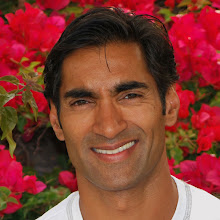Ten years ago, when the clock struck midnight on 1/1/00, nothing happened...
At one time, the world expected everything from airplanes to cardiac monitors to stop functioning. This doomsday vision was referred to as Y2K - a computer bug that had the potential to disrupt all life upon the arrival of the new century.
Achieving 21st century global consensus and cooperation will require more effort and creativity.
Slate technology columnist, Farhad Manjoo, has garnered some recent attention for suggesting that we can learn something from Y2K. Mr. Manjoo makes a reasonable assertion that we averted a potential crisis in Y2K because we achieved global consensus and cooperation.
Over the past decade, the rest of the world grew up. The United States is no longer the biggest kid on the block. We’ve been humbled by financial busts, terrorism, natural disaster, prolonged wars, and the rise of new super-powers such as India and China. If global consensus and cooperation are required to solve many of today’s biggest national and international crises, then we’ll need better tactics, creativity, and a more prolonged effort.
There are no perfect responses to complex and long-running problems.
Averting today’s potential disasters in financial collapse, H1N1, cyber-security, terrorism, and global warming for example, are also more complex and long-running. We could go on spending billions or trillions of dollars in any one of these areas, and perhaps never know if we’ve been successful (aka Precautionary Principle). At the very least, any resources spent or actions taken will be imperfect. Therefore we can invariably expect claims that unnecessary and incorrect measures were taken to address potentially hyped-up scenarios.
People have the power to produce meaningful progress and solutions.
When it comes to global warming, I am not the most competent judge of science, but I know that I care enough to make changes in my lifestyle that are more sustainable for living on this planet. And, I care enough to help and encourage others do the same. What’s more important is that this same eco-conscious and passion are growing in America and around the world.
Unlike Y2K, where most of us sat back and let governments and technology professionals solve the problem for us, progress on global warming can also be achieved from the bottom up. In our 2.0 world, we all have powerful new ways to search, network, communicate, learn, and share information. Individuals can now be recognized as thought leaders and influencers. Businesses are answering the call with greener alternatives for their customers, and implementing more sustainable ways of operating. Whether you are interested in saving money, or saving polar bears, the motivational levers are growing for consumers and businesses. So are the tools and technologies for making an impact.
As for governments of the world, we should continue to see attitudes and policy evolve as the voice of the people grows stronger, and the scientific data continues to support positive change. They may also find frameworks that harness the power of the 2.0 people of the world.
Embracing failure, debate and imperfection can result in discovery, innovation, and the truth.
I’ll close with some recommended reading. Check out the New Year’s edition of Wired Magazine with the word “FAIL” on the cover. Failing doesn’t strike you as something that would contribute much to your New Year’s resolution, but this featured section explores lessons we can learn from “screw ups, disasters, misfires, and flops.” Moreover, “if we can train our brains to embrace failure, we open ourselves to new discoveries.”
As someone who has built businesses, developed new software, and managed large scale technology deployments, I believe that if perfection does exist, then it is fleeting. That’s because everything is evolving.
In the context of addressing many of our biggest challenges in global warming, healthcare, and financial markets, what’s often seen as a sub-optimal or overblown response, can be better than a late response or possibly no action at all. Additionally, these actions can open the door to innovation and fine-tuning that might not have been possible without them.
It’s time to raise our glasses...
Here’s to worrying less about perfection, embracing failure, and making small changes that improve the quality of our lives and the world we live in.
Happy New Year!

